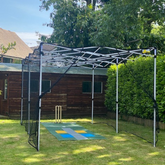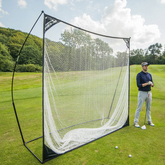A New Year's resolution for all the family
04 Jan 2016
0 Comments
When we set New Year's resolutions that involve getting fitter or healthier, they are often very specific to us and our personal goals or ambitions. A resolution for not only you, but the whole family will ultimately give you a shared goal, bring you all lots of fun and get everyone feeling healthy and energised. As well as happy.
Most people find embarking on something as a group or a team can help with motivation and staying on track. In a family situation this can be really powerful as children will look up to parents and take their lead. Parents don’t want to let their children down, and couples often like a bit of friendly competition! So, how does this translate into everyday life and where do you start?
As life is often busy and entails work, school, multiple social lives and commitments, it is important to keep things simple and manageable. Complex, time-consuming plans feel like extra chores and we all know that the way to stick to things is to make them fun and compatible with everyday life, so, why not consider the following:
Get walking This sounds obvious but it is often so obvious that it is overlooked. We are all guilty of using the car far too much, as we believe it saves us time. Often it is not the case and loading up kids, kits and bags, driving to school or various clubs and then trying to find parking spaces can be pretty stressful. Schools, after-school activities and friend’s houses tend to be within walking distance of our homes and leaving the car at home or even a few 'car free' days a week can really help to increase activity levels. There are times when you have to rely on the car, but on the days where you know you can leave it at home and walk instead, then do it. It is better for everyone and gives you all the chance to chat and have some family time together; trying to focus on children’s conversations whilst in a car, on a busy road is not conducive to a relaxed chat!
Make fitness fun Exercise (for adults as well as children) doesn’t need to be strict or regimented. Some children are naturally sporty and active and others need a bit of encouragement. Similarly not all parents want to spend every day at the gym or embarking on an arduous fitness programme, so keep it simple. Regular weekend bike rides, family days out that involve moving lots, such as parks, nature trails, activity centres, games in the garden.
Be inventive! Exercise and activity doesn’t need to be an expensive pursuit, children tend to be just as happy with simple games as they are with expensive days out. Invent games and activities that can be played at home, or, if you need some inspiration, invest in some kit that enables everyone to enjoy playing in the garden, such as those listed below which encourage fun and activity for everyone:
The family that eats together… Most people would agree that children shouldn’t be exposed to food or weight worries. However it doesn’t hurt to educate them about the types of foods that are more likely to keep them feeling happy, healthy and bursting with energy. Children grow quickly, ideally move lots and are developing mentally and physically at a fast rate. We need to ensure they are getting the right foods into their diet to support their development. It is really easy to get good foods into the diet and doesn’t need to be time consuming or expensive. By swapping sugary cereals for porridge, muesli or eggs, sandwiches for salads and wraps and processed ready-meals for home cooked meals such as stews and curries, containing leans meats, pulses and lots of vegetables then you are doing really well! The odd sugary treat is fine, but aim to swap sweets and chocolates for fruit and crisps for nuts, seeds, oatcakes and hummus. It is good to compromise with children, so you can offer them a day in the week where they have sweets or chocolate, or keep them for the weekend. Life is all about balance. Children learn by example so if you naturally take the healthy option then they will follow. It may take some time and patience, but it will pay off in the end. As activity levels increase, then you need to ensure you and the whole family are eating the right type of food to sustain you. Slow-release carbohydrates (vegetables, brown bread, rice, pasta) will provide quick to utilise energy, and protein (lean meat, fish, pulses, eggs) and fats (eggs, oily fish, oils, nuts, seeds) will help with muscle growth and repair and will sustain appetite throughout the day.
Make team decisions In a family dynamic, everyone needs to be listened to and their wishes considered. This isn’t as easy with very young children, but as your children get older they are likely to have strong ideas about what they do and don’t enjoy. It is important everyone is listened to as this encourages compliance, so if you decide that you are going to do something as a family every weekend that encourages fitness and activity, then take it in turns to decide what that activity is. If everyone feels as though they are treated fairly and everyone is on board with their choice, they are more likely to agree to take part. Compromise is important; if you find it difficult to encourage activity with your children then make it easy for them to say yes. If they don’t want to walk as much as they should, then introduce it gradually. If removing sweet and sugary foods and swapping them for healthier snacks is a problem, then do it slowly. Radical changes often don’t work, but by approaching things in a calm way and slowly increasing exercise and more nutritious foods, good habits are more likely to be formed, and to remain.
Your children will learn from you. If an active healthy lifestyle is something that naturally occurs then it will become second nature to them. By making health and fitness choices that benefit, not only you, but also your family as a whole, you are providing them with the foundation for a long and healthy life. Habits and behaviours are formed in early age and a child who is inactive, overweight and doesn’t have a well-balanced diet is unlikely to become a health-conscious adult. Conversely, a child who has always eaten a wide range of nutritious foods, who opts for walking over getting lifts everywhere and spends much of their time in active pursuits is likely to take these habits forward into adulthood. As healthy parents, you are not only improving your own lives by making positive food and fitness choices, you are also showing your children that as one ages, they can continue to be active, healthy and happy.
So make 2016 the year of the healthy, family-focused New Year Resolution!
Huge thanks to Alex Ravenscroft for the guest blog. Alex is a nutritional therapist, a personal trainer and a lovely lady! Find out more about Alex here.
Tags:













